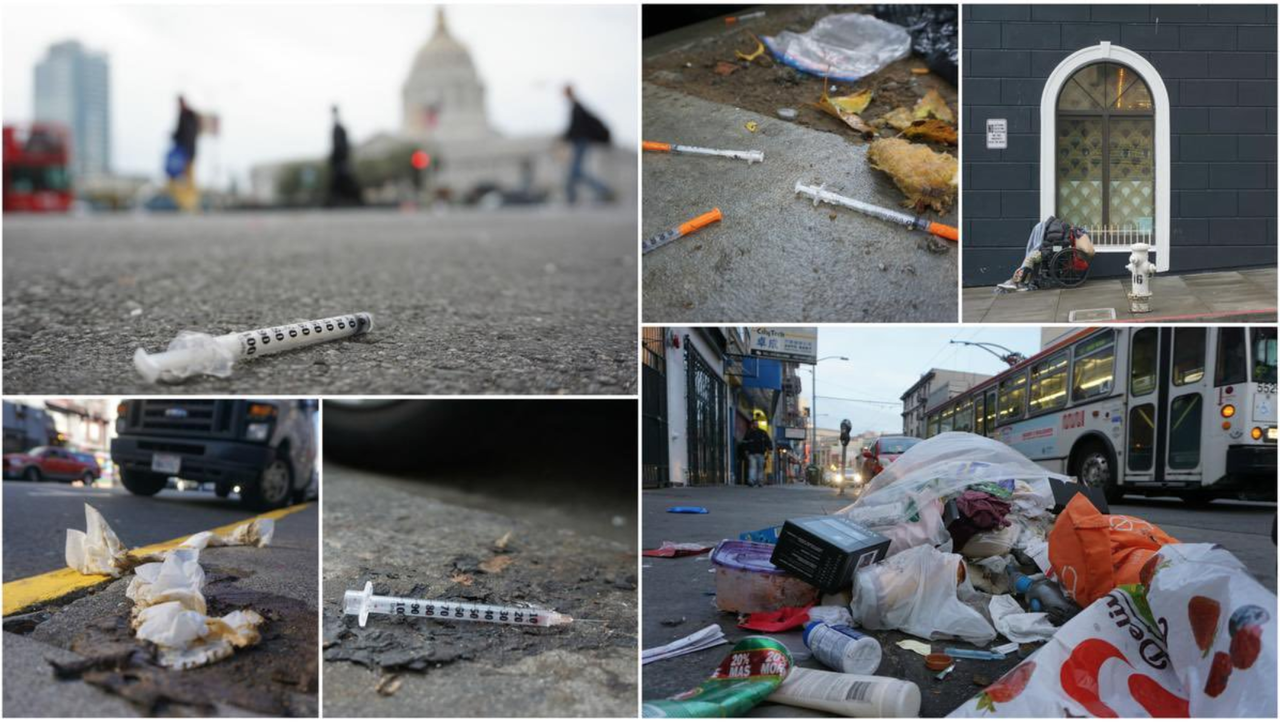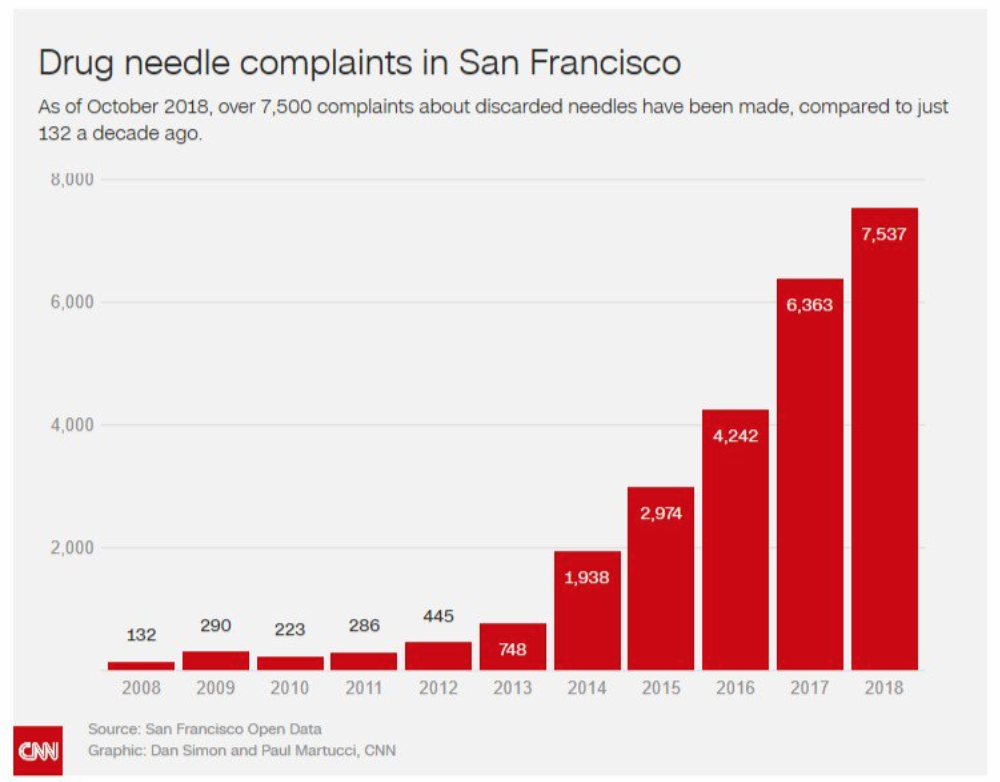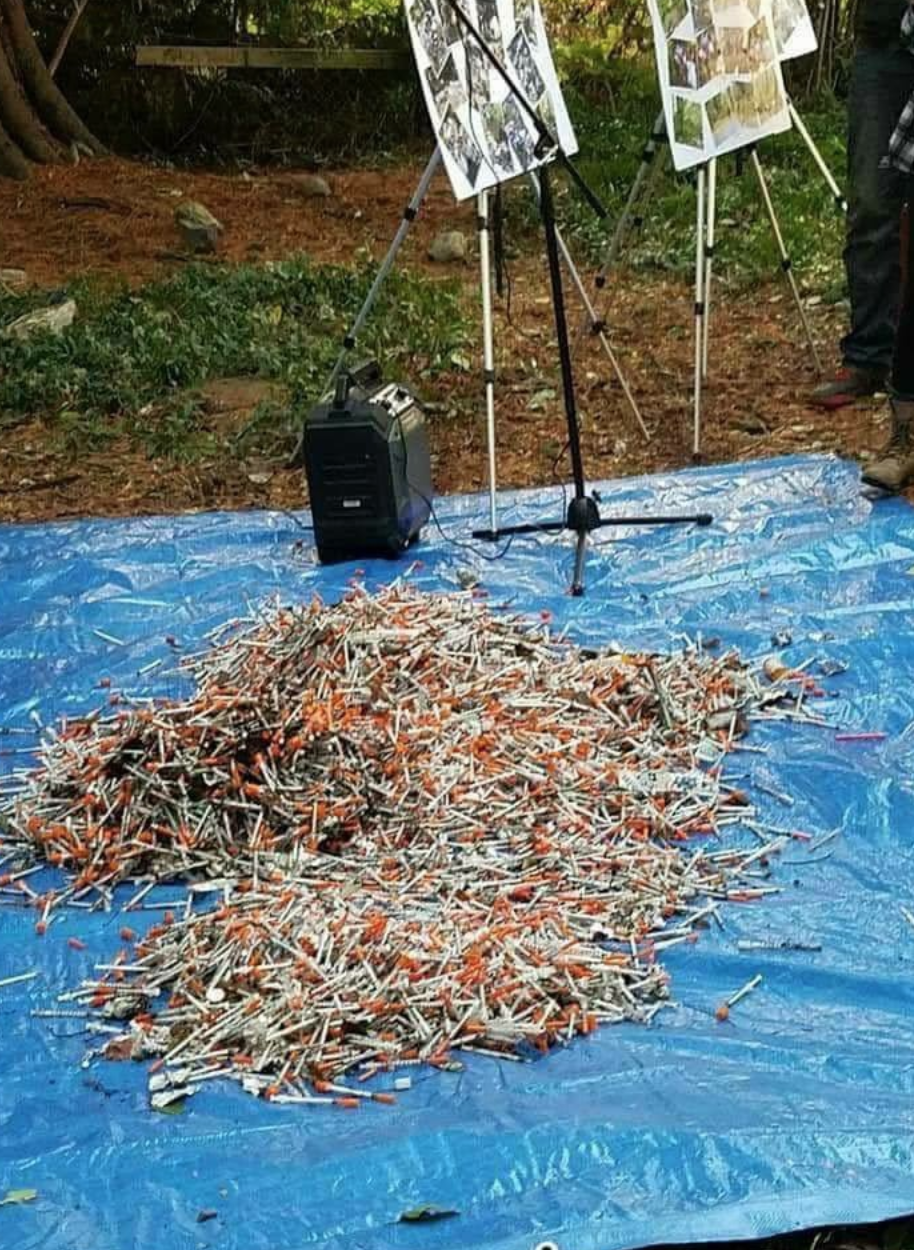San Francisco officials are debating if they should continue a needle exchange program that has left city streets littered with hazardous waste.
We have made an uncomfortable observation on social media: Thousands of needles are scattered on city streets, most likely came the Department of Public Health’s needle exchange program.
San Francisco Board of Supervisors expects to approve a seven-year extension of the exchange program, could cost taxpayers a whopping $26 million.
According to the San Francisco Examiner, the city launched syringe clean up crews last summer that collected 90,000 syringes from city streets in its 180 days on the job.
In 2017, the exchange program distributed 5.3 million syringes and collected 3.3 million, a 62% return rate, according to the Department of Public Health.
Of the 3.3 million syringes collected, 59,000 were discarded into syringe disposal kiosks and 107,136 collected by cleanup sweep teams that operate seven days a week from 7 am to 7 pm, respond to calls and texts from residents requesting needle cleanups.
In 2018, the program handed out 5.8 million syringes and collected 3.8 million, with a higher collection rate of about 65%. The Examiner noted disposals at kiosks increased to 241,080 in 2018, a 300% jump from the 59,000 in 2017.
#ileandover #SanFrancisco addresses #addiction one dirty syringe disposal box at a time pic.twitter.com/K8PCBiVLeK
— I-lean Dover (@I_lean_dover_pr) December 11, 2017
Sweeps in 2018 picked up 216,969 needles from city streets, about double the amount collected by this means in 2017.
There are about 24,500 injection drug addicts floating around San Francisco last year. These addicts use several needes per day, Tracey Packer, Department of Public Health’s director of the community health equity and promotion branch, said at a recent hearing.
With a vote on extending the needle exchange program imminent, committee Chair Sandra Fewer and Supervisors Rafael Mandelman and Catherine Stefani addressed some of their concerns:
Mandelman asked health officials to put a “finer point” on why The City doesn’t require a one-for-one exchange for needles. He said there is a “narrative out there” from those who see “the proliferation of used needles out on the street” that by not offering a true exchange of a dirty needle for a clean one “we’re doing something wrong.”
“Data shows that needs-based programs that allow people to get the number of syringes that they need at that moment to get them to the next time they visit a syringe site are more effective,” Packer said. “HIV prevalence remains low and stable among people who inject and we are grateful for the support of the city leadership over the course of the HIV epidemic and San Francisco has lead the nation in syringe programs.”
Stefani said she continues to her complaints about needle litter from her constituents and was critical of the collection rate.
“The 62%. That’s like a D right?” Stefani said.
She suggested officials amend the contract to require increased reporting to the Board of Supervisors on issues such as cleanup rates or connection of users to services, but Mandelman said additional requirements would be onerous for the programs.
“The way to get that number higher than 62% is to get more of these folks off the streets, into programs and into housing,” Mandelman said.
Earlier this month, the health department sent a memorandum to Stefani indicating that the City Controller’s Office has initiated an audit of syringe access and disposal that would examine the needle exchange program.
“Improperly discarded syringes are a public health, quality of life, and public perception issue,” said a description of the planned audit. “There is a need for a coordinated approach to measure how well the City is doing in its syringe recovery efforts, and to determine how or if San Francisco residents and visitors are better off as a result of these services.”
By many measures, San Francisco is one of the world’s top tech cities and a world-class traveling destination, but city officials are overwhelmed with an exploding homeless population, transforming the city into a drug-infested hellhole.
via ZeroHedge News http://bit.ly/2UPIrb3 Tyler Durden




